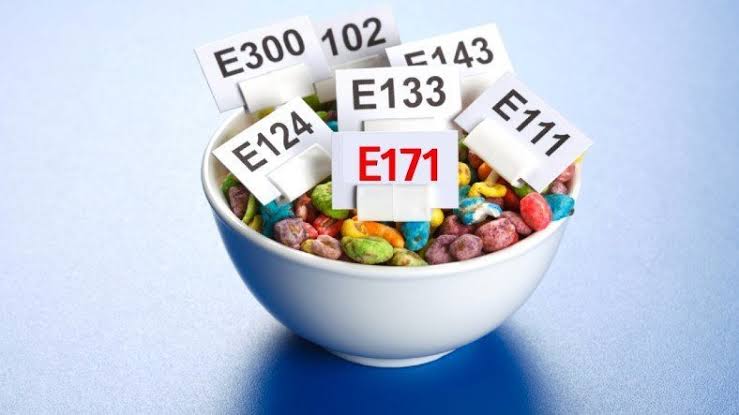Thanks to the developing technology, today, we have many products that greatly facilitate everyday life and occupy a great place in our lives. However, some products that play a fundamental role in our lives contain some chemicals that are extremely dangerous for human health. Here is titanium dioxide or the E171 additive, commonly referred to as E171, one of those hazardous chemicals.
The E171 is part of numerous products in many different fields, especially in food and industry. The fact that it has a very common usage area is one of the chemicals that threaten the human health of the additive E171. Europe E171’in, which is stated to be quite dangerous by the relevant institutions of the Union and is banned from use in many European countries, will be banned in our country as of April 1, 2024. So, what is the E171 that scientists show among the most dangerous additives, what are the harms, what products are used in? Let’s look at the details together.
What is titanium dioxide or commonly used E171?
E171 is a widely used food additive all over the world. This chemical is used as a whitening and gloss-enhancing additive in dozens of products in many different fields. The chemical also has a moisture retaining property. It is widely used in food and cosmetic products. This makes the chemical one of the most threatening additives in human health.
What products is E171 used in
The use of E171’in, which we mentioned above, is quite common. For example, car windows, paints, sunscreens, shaving foams, shampoos and toothpastes are among the products that contain the chemical. Unfortunately, E171 is also a frequent guest at our tables. Some consumer products such as baking soda, ready-made sweets, candies, chewing gum, white flour, table salt and white chocolate are also produced using E171 food additives. So, for what purpose is E171 used in many products that we use in everyday life?
As we mentioned before, E171 is used to increase the whiteness and brightness of the products it is mainly in
In addition to all these, the moisture retention feature also causes it to be used in different food products. Some food manufacturers aim to extend the shelf life of their products thanks to this chemical.
Why is this chemical banned by the European Union? The answer to the question why E171 was banned is hidden in the dangers of the chemical
What are the damages of E171?
In recent years, some scientific studies, especially on mice, have revealed that the chemical is dangerous enough to disrupt DNA structure in the long run. The International Agency for Research on Cancer considers titanium dioxide in the category of substances that can be carcinogenic to humans. According to studies by various institutions and organizations, E171 is a carcinogenic substance.
In addition, the moisture retention feature can cause the body’s water balance to deteriorate and the health problems that arise accordingly
On the other hand, according to scientific studies, titanium dioxide is a chemical that cannot be eliminated from the body! This makes this substance, which we encounter in almost every aspect of everyday life, much more dangerous.
There are also those who claim that the chemical used as a colorant in a large number of food products does not pose a danger to the food sector
People who make this claim say that scientific research on titanium dioxide is mostly carried out on animals, so there should be more scrutiny about its effects on human health. On the other hand, there are those who argue that the chemical does not cause any harm to human health by oral and skin contact. In short, the number of people who say that foods containing E171 do not harm human health is not small.
The use of titanium dioxide additive will be banned in our country in the coming period
The E171 additive was first banned in France in 2020 after alarming claims and scientific studies. In the following process, EU member states gradually banned the use of this chemical. With a recent regulation change, the use of E171’in in our country will be banned. The ban will be effective as of April 1, 2024. As of this date, the use of E171’in will not be possible in accordance with the issues specified in the relevant regulation. However, products produced before this date and containing E171 can be sold to the consumer until the shelf life is over.

